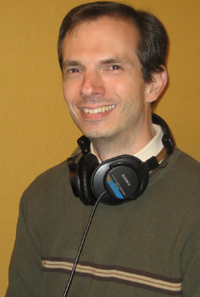Since the suicide of his 29-year-old daughter Katie, who had bipolar disorder, Dcn. Ed Shoener has made it his mission to reduce the stigma and misconceptions around mental illness in church circles and to guide parishes in creating their own mental health ministries. Dcn. Ed joined me recently on “Christopher Closeup” to share his story.
Katie’s bipolar first manifested itself when she was in high school, though she hid it well from her parents. Their introduction to the problem occurred after she tried to commit suicide. Counseling and medication stabilized Katie once she received help, but every once in a while, she would fall prey to a bipolar episode. Katie managed her mental illness for more than a decade and was building a life for herself. Dcn. Ed believes that her suicide was likely an impulsive choice made in the midst of a major depressive episode.
In the aftermath of her death, Dcn. Ed wrote an obituary about what happened so that there wouldn’t be any “gossip or speculating” in their parish or small town of Scranton, Pennsylvania. That obituary went viral, shocking Dcn. Ed, but also teaching him a vital lesson. He said, “It spoke to what so many people with mental illnesses live with. The stigma, the discrimination, being defined by their illness…I was open that [Katie] had this illness, but she wasn’t defined by this illness, and she’s a beautiful child of God, loved by Jesus Christ…This viral response, for me, was almost a mystical experience, of so many people around the world saying that the church needs…to start ministering to people that live with these illnesses and their families and their caregivers.”
This is especially important in light of the beliefs of some that mental illness can be prayed away with a stronger spiritual life. Dcn. Ed noted, “This outdated notion that they have a mental illness because they don’t pray enough, that’s harmful…because people, often, with depression and anxiety, already the illness is telling them they’re not good enough. The illness tells them that they’re not worth living, that they’re a terrible mistake. So, to have someone heap on top of that by saying, ‘Well, you’re thinking that way because you don’t pray enough,’ that just makes things worse. So, I hope people stop thinking that way.”
To that end, Dcn. Ed helped launch the Association of Catholic Mental Health Ministers, along with Bishop John Dolan from the Diocese of Phoenix, Arizona, who lost three siblings and a brother-in-law to suicide. They offer resources to parishes on ways to begin their own mental health ministries, as well as resources to individuals and families looking for prayers, community, books and more.
“When Katie first experienced bipolar disorder,” recalled Dcn. Ed, “we had no one to talk to. And to be honest with you, the last place I thought to go was the church to talk about mental illness and what happened. Now we encourage parishes to have support groups for the parents and caregivers, where they can come in and talk about this. So often, people are isolated. They think they’re bad parents, [that] they did something wrong [because] their child had a mental illness…So we offer this online training program…It’s free. You can go to our website, [catholicmhm.org]…We offer other things on grief support after a suicide…So, I would encourage people, go to our website, take the training courses, and it’ll give you the confidence that you need to start this type of ministry in your parish.”
For free copies of the Christopher News Note FIGHTING DEPRESSION, FINDING HOPE, write: The Christophers, 5 Hanover Square, New York, NY 10004; or email . Tony Rossi is Director of Communications for The Christophers.

Tony Rossi, The Christophers
